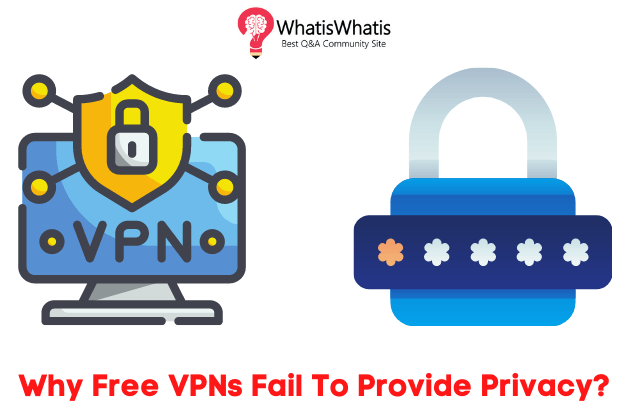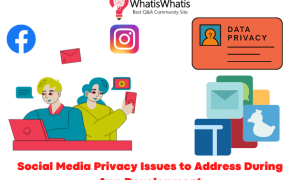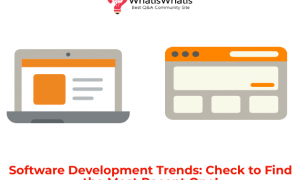If corporations like Canva and Zoom can become victims of massive data breaches, what about freelancers, remote workers, and individual users who only browse the internet for online shopping or gaming? What about torrenteers who exchange large files via torrenting clients and that too on a public Wi-Fi service? The answer to most of these cybersecurity concerns is a VPN app, a Virtual Private Network that promises to provide privacy and help users stay safe in the digital world. But what if this privacy tool backfires and shares your data with third parties?
Read this article to discover the downsides or disadvantages of using free VPN for iPhone and Android devices and how to differentiate between good and bad VPN services.
Your Free VPN for iPhone is Not Really Free!
If free VPNs don’t charge money, what do they cost? How do these free VPN companies run their businesses? How do they pay their technical assistance teams? How do they bear the marketing expenses?
For background information, 7 free VPN companies based in Hong Kong were convicted for data leaks and security breaches. This means that the free service providers that didn’t charge a penny to their users had an entirely different business model.
Firstly, they offer a free VPN app, route massive internet traffic through their data servers and then analyze the patterns of users’ online activities.
Later, they use this processed data to channel personalized advertisements for users and sell most of this data to third-party agencies as well. This is how they generate revenue and continue to provide free services.
Now this VPN for iPhone or Android that you had trusted for the protection of your sensitive data is actually selling it to intruders, researchers, government agencies, and other parties we may not be aware of. This is the biggest privacy failure and a total contradiction to a free VPN’s privacy promise.
Disadvantages of Using Free VPN
Digital Fingerprinting
A digital fingerprint is a user’s unique digital identity comprising his favorite books, foods, chocolates, his device details, and whatnot. It reflects a user’s personal choice and preferences he commonly makes in the real world.
See more: 10 Important Facts You Should Know About digital signature Online Certificate
This digital fingerprint is created using bulks of data about online activities including the websites a user visits frequently. An app requires personal data, information, and patterns of online behavior to create these unique digital fingerprints, and if we look carefully at their conventional mechanism, no VPN service, whether paid or free should log the user activity.
Uses of Data
Digital fingerprints are used to create advertising profiles. The data is further sold on the dark web and open platforms against huge sums of money.
Also, the files that contain a lot of sensitive data are held hostage against ransom. Some users have even received threatening phone calls after they were locked out of their media storage.
Fake VPNs – Disadvantages of Using free VPN
A free VPN service that shows advertisements is just like a malicious app sitting on your device and spying on you through the microphone, camera, and media storage.
These apps do not provide you with a different IP address, do not protect you against DNS or IP leaks, and do not provide faster bandwidth for torrenting or streaming.
They just act like dummy apps with a server switch, pretending to secure your online traffic. These VPN companies do not utilize any encryption technology because they are not committed to preserving the privacy of their users. In fact, these apps plant malware (adware, spyware, and viruses) in cellular devices and consume excessive battery and data.
Know more: Why You Need to be Cyber Resilience?
Such VPN apps initially ask for app permissions then secretly forward the data you exchange between your device and server to third parties who use your data for sending you personalized advertisements.
So there is one confirmed fact in disadvantages of using free VPN: these VPN services do not sell ‘privacy’ because they don’t even charge for it. Then, what else is their product? Your data, your device location, your internet habits, and everything your search online is capitalized by such VPN services for revenue generation.
How to find the Best VPN for Privacy in 2021?
In a digital era where online threats are growing like a Topsy, using free VPNs is an elephant in the room nobody would discuss.
To promote online freedom, privacy, and safer internet experiences, it is important to take a plunge and switch to a premium service, a dedicated VPN for iPhone or Android. Here’s how you can find the best VPN for privacy, security, and speed.
- Best VPNs are never free; free VPNs are not good! So, a reliable VPN company will always charge a subscription amount. Weigh the benefits against the price, check discounts and promotions and then calculate the cost of VPN per month. If the average monthly cost is around $8-10, the app can be a safe bet. If the app costs lower than this, it is ideal to take a free trial before committing to it finally.
- Check where the VPN company is based. It should be based in a safe jurisdiction where governments don’t require tech companies to log user activity.
- Check whether the VPN service has high encryption standards, dedicated apps for all major platforms, multiple servers for popular locations and is compatible with P2P.
- Talk to the technical assistance team and ask them how they collect and handle user data. Ask them if the VPN app shows advertisements.
- You can also test other features like Internet Kill Switch, Smart Connect options, IP/DNS leaks, ad-blocker, and malware protections.
Bottomline
After the critical examination of free VPN’s business model, we can surely comment that free VPNs are not really free. Since cybersecurity threats are growing, users should not take their privacy and online freedom lightly, and especially when there are thousands of free apps ready in the market to obtain sensitive information.
Privacy and digital safety are fundamental digital rights, but in 2021, they come with a price tag. Now it’s your call to decide if you would trade usability for privacy! If your answer is no, it’s the right time to invest in a premium VPN and reclaim online freedom. For further knowledge about the advantages and disadvantages of using a VPN, you can check a guide on the website.






Leave a comment